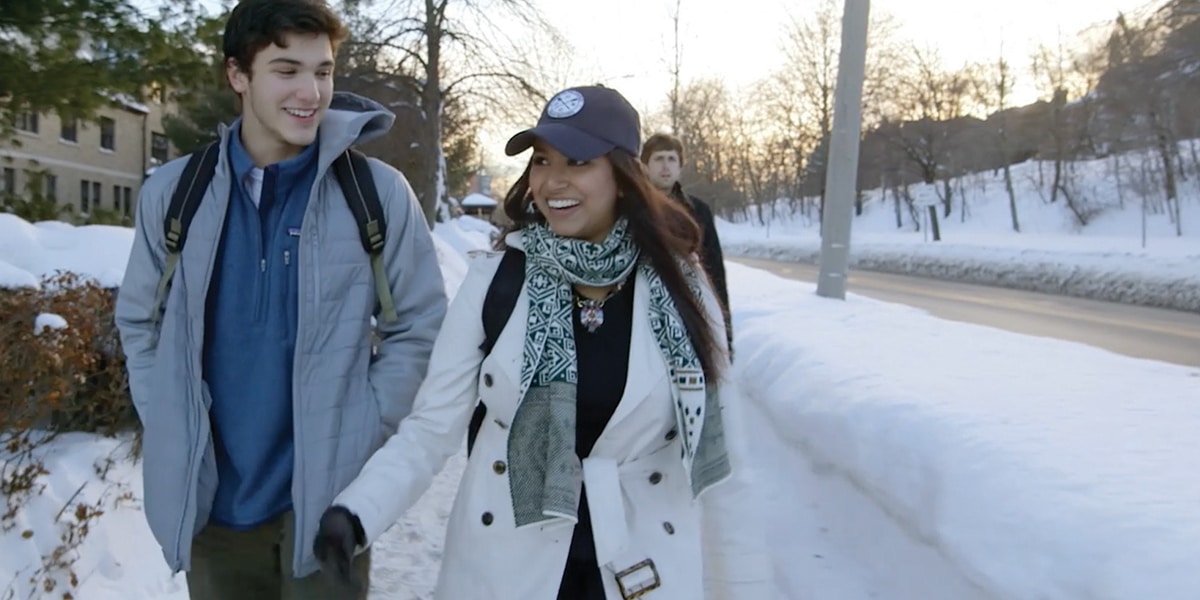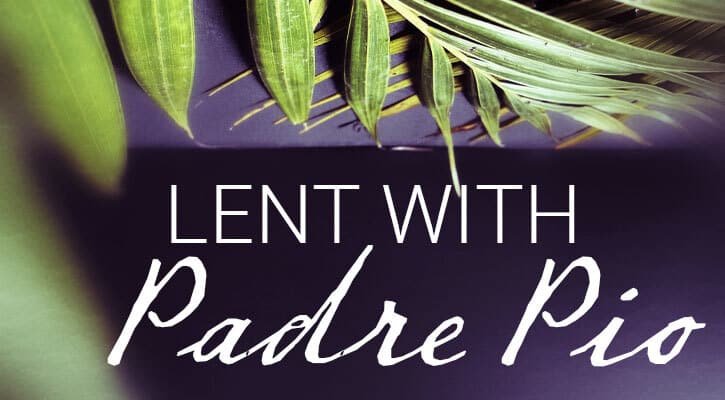Young people have forgotten how to date responsibly. Boston College’s Dr. Kerry Cronin sought to change that.
A documentary—and a nationwide conversation—soon followed.
Kerry Cronin, PhD, believes in dating.
As a professor of philosophy at Boston College and a fellow at the Center for Student Formation, Cronin has met hundreds of students in her more than 20 years of teaching, counseling, and mentoring at the Jesuit university. When she realized that the young people in her seminars and classes were not dating, but participating in the hook-up culture, she realized that kids didn’t know how to date. It is a lost art that she is trying to reestablish by giving them a dating assignment. Cronin’s experiment is the subject of the recent documentary The Dating Project.
There is a deep irony in this story, however. At 52, Cronin is single and only occasionally dates. Her family is amused that she gives this assignment to her students. “I have never been known to be good at dating,” Cronin tells St. Anthony Messenger. “My family laughs about it, but they have always been incredibly supportive. When the film was released, wherever they were across the country, they went to see it, and they love it.”
Cronin decided to assign dating to her students—first for extra credit and then for a grade. The idea was not to marry them off. Instead, she wanted them to experience traditional dating as an alternative to the hook-up culture. Her students acknowledge that talking to someone face-to-face can be harder than having sex in the dark with someone they barely know. So Cronin created the step-by-step assignment for her class and recalled for them her own past relationships.
“Dating made me begin to think about how to make someone else’s journey my own and how to share with someone else,” she says.
Released earlier this year, The Dating Project features Cronin as well as five young adults—from college students to career professionals—as they navigate the dating experience. It came about when coproducers Megan Harrington and Catherine Fowler Sample went out with friends one night and realized that most of them were unmarried and not dating. This intrigued them, so they started doing research for a documentary and discovered Cronin’s dating assignment. Harrington says that this turned into “a film about being human, about self-worth, and questioning what we are being sold by the popular culture.”
The idea behind the film was fascinating—as equally fascinating as the woman who created the assignment.
Catholic Roots
Cronin was born in Hartford, Connecticut, the fifth of six children and the only girl. She went to St. Justin’s Elementary School and Northwest Catholic High School. From there, she studied philosophy at Boston College. Cronin describes herself as a peacemaker, someone who is always trying to smooth things out. “I am not confrontational. I am loyal and a good listener,” she says. These traits serve her well as a professor and mentor to young adults at Boston College.
Her family has deep Catholic roots. Three of her uncles, now deceased, were priests. Her paternal uncle was Father James J. Cronin, a pastor in the Hartford Archdiocese, who was a great supporter of Catholic schools and known for his ability to foster active and dynamic participation in his parishes. One of her maternal uncles was Father James Flanagan, founder of the Society of Our Lady of the Most Holy Trinity. The other was Father Joseph Flanagan, SJ, a professor at Boston College. He had the most influence on Cronin’s intellectual and working life. Looking back at her family, she says that in their home, if you waited around long enough, a Mass would be celebrated because one of her uncles was visiting. “Some very good things were modeled for us growing up in our family,” she says.
And that has informed Cronin’s teaching. Around 2010, she started talking to her students about dating and relationships, as she explains in The Dating Project. She recognized that the term hooking up is vague: It could mean kissing, touching, or going even further. Students often gain status among their peers by bragging about their sexual exploits. Cronin set about changing that. She asked the students to go on a date that first year—which none of them did because they had no idea how. Film and television rarely show kids about traditional dating, and parents don’t often share their own dating experiences. Young adults are stressed about being rejected. The whole model for dating was gone.
“Dating is a social script that is no longer being supported by our culture,” Cronin says. She confronted her students with a question: Is it really easier to hook up with someone rather than ask them out for a cup of coffee? After lengthy discussion, her students realized that dating is, in fact, easier.
“They want a way out of the hook-up culture, but no one had offered it to them. Hence, the dating assignment,” she says. When Cronin gave her students the assignment, she told them they had to ask someone face-to-face out on a date—no texting. The assignment was a way to step outside of the pressure of the dominant social script of the hook-up culture on college campuses. The assignment turned out to be a seamless expression of Cronin’s philosophical studies about moral reasoning, self-awareness, responsibility, and ongoing student formation in the Jesuit tradition of the college.
Higher Learning
Cronin breaks down the dating experience into three levels. Level one means you can be going for coffee with several different people. By level two, if a kiss is involved, it implies exclusivity, and the attraction between both parties should be acknowledged. Real relationship work begins with level three, when you ask yourself, Can I lean on this person emotionally? Is this person going to become one of the primary emotional relationships in my life?
Cronin reassures her students that they shouldn’t get to level three too early, and certainly not by the second date. One problem she sees for students is that they start having level-three conversations when they are only at level one—too much, too soon.
When approaching the assignment, Cronin’s students feared rejection. They had a compassionate mentor to help guide them. “Originally, when I gave this dating assignment, most of the students would say it was something they wanted to do. I was willing to talk to them about their fears and their awkwardness. This helped them. I am always ready to laugh about dating and encourage them not to take themselves too seriously,” Cronin says.

“After a couple of years, students had already heard about it, so they knew it was coming. In some cases, they took the class specifically so they would get this assignment.”
But not everyone thinks Cronin’s dating assignment is a good idea. One student simply did not want to do it. Another identified as asexual and, therefore, did not wish to participate. Cronin says she is always happy to receive feedback and is supportive of their self-knowledge.
“I would not push anyone who didn’t want to do the assignment. But, developmentally, so much is going on in college students,” she says. “It is a productive time for good questions, so I respond by asking them to consider why or why not they will fulfill the assignment.”
Sound Advice
Cronin bemoans the fact that there are so few books for parents to help their kids date in a healthy way. Cronin loves the spiritual memoir Girl Meets God: On the Path to the Spiritual Life, by Lauren F. Winner. The author talks insightfully about how Christians view sex in healthy and unhealthy ways. “I am in support of right relationships according to Church teaching,” Cronin says. She cautions that purity language on the part of parents can make moral choices seem overly rigid—more emphasis on rules than on love and fidelity.
“Going back to the moral imagination that is so important in my own life, I would advise young adults, when they are trying to figure out how to be a good person and to treat their own bodies and feelings with respect, to come to terms with their own desires and fears. It is not helpful for them to overemphasize or underemphasize their romantic ideas.”
As for dating apps, Cronin says it’s a high-stakes game. “It’s a very fast education because some people want to hook up. Or they want to keep you on a leash and then just disappear. These apps do give a person a sense of the people who are out there looking for a relationship, but there are a lot of creeps out there too.”
What’s most important for Cronin is that her students are asking questions and seeking answers—to the joy of their professor.
“I have to say, I am gifted with a very easily delighted temperament, so most of life delights me,” Cronin says. “Every class has its own dynamic. Last year’s class had the most genuine questions ever. This feedback really meant something to them because they had a genuine interest in what we were talking about. When a question comes from a place of real curiosity, it just delights me.”
Sidebar: Love & Dating in ‘Reel Time’
The Dating Project is a relevant documentary that offers insight for teens, parents, clergy, youth ministers, and, of course, college professors. When viewers see the students eagerly taking notes during Kerry Cronin’s classes, they see that the film addresses a great need. But as a film reviewer, I had to ask Dr. Cronin if she ever uses mainstream movies in her classes. She doesn’t, though she likes the idea. She is a romance film buff herself and provides three films that could easily integrate into her classes as examples of dating in cinema.
The Wedding Plan (2016) “It is a film about a young woman who has faith that God will send her a husband. The main character does take a spiritually active role in making that happen, but it raises romance and theological questions. I am constantly raising the issue in my classes about the supposition that many of us have: If it’s meant to happen, it will. This is preposterous to me—as if you don’t have to do anything about it. I don’t subscribe to this theology that all we have to do is sit around until God drops someone into our laps. I think of our relationship with God as much more participatory.”
The Proposal (2009) “What I love about this film is the interesting way young adults close themselves off from romance and relationships. Sandra Bullock’s character does a great job of communicating why we shut out our emotions. The Ryan Reynolds character proposes at the end of the film. When she asks why, he says, ‘I want to date you.’ In other words, ‘I want to get to know you better.’ This is a fantastic scene that supports the dating assignment very well.”
Nick & Norah’s Infinite Playlist (2008) “This film has a great plot because the characters are getting out of bad situations with unhealthy people. It shows how to get over an ex: that staying with the wrong people is not healthy, that allowing a new connection to happen is a good thing, that having great friends who tell you what you need to hear is a gift. Nick and Norah spend a night getting into crazy mishaps. It’s wonderful in its portrayal of how we talk to each other—and don’t talk to each other—as we get to know each other.”







